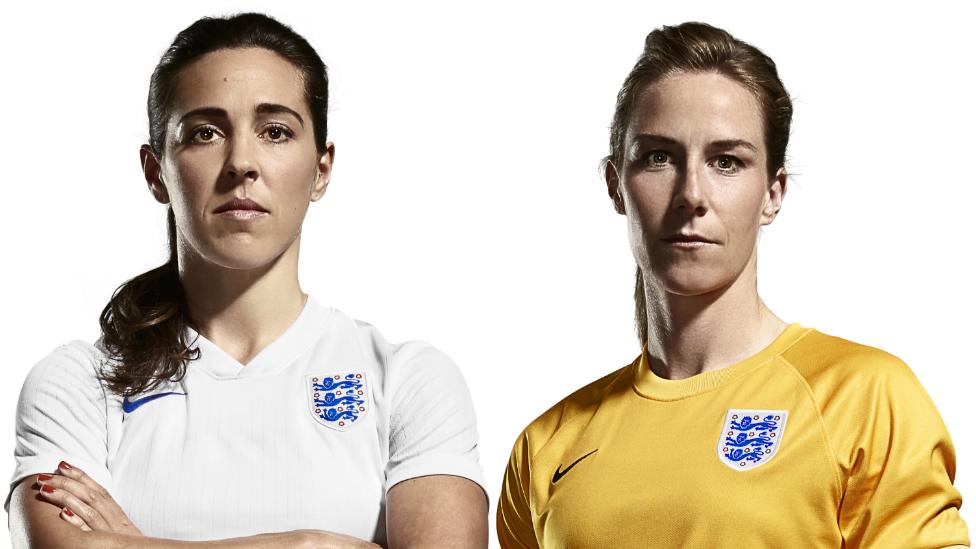Women's Euro 2017: 8 things you need to know
- Published
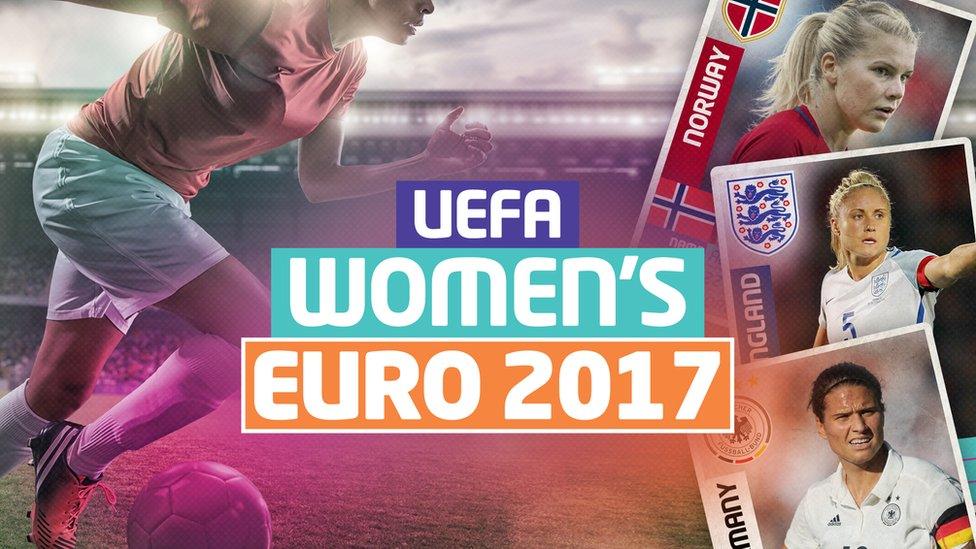
Have you been missing football over the summer? Worry not, the Uefa Women's Euro is about to kick-off in what promises to be a spectacular tournament of action. Here's all you need to know ahead of the big kick-off on Sunday...
1.) When and where is the tournament?
The competition takes place in the Netherlands, and the action begins on Sunday 16 July and runs until 6 August. The host cities are Breda, Deventer, Doetinchem, Rotterdam, Tilburg, Utrecht and Enschede, where the final will be played at the stadium of Dutch side FC Twente, which has a capacity of 30, 205.
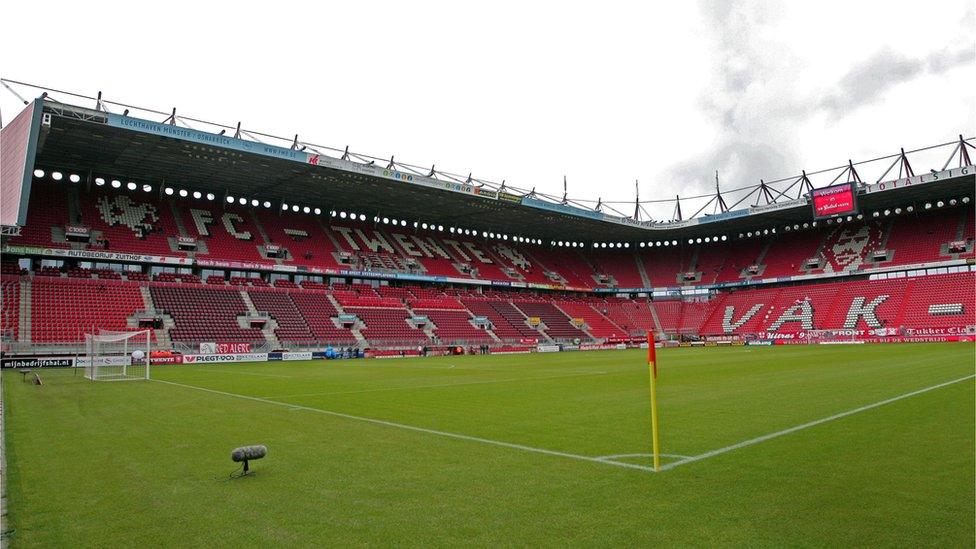
This stadium will host the final of the tournament
2.) When was the first ever Women's Euros?
The first finals was held in 1984, but it wasn't until 1991 when it was given full championship status by Uefa. The competition changed from being held every two years to every four years in 1997 to avoid clashes with the Fifa Women's World Cup.
The finals have increased from four teams originally, to 12 (2009 and 2013) and now there will be 16 teams this time around.
3.) Who has won it?
Germany have been far and away the most successful team in the history of the competition. They've won it eight times in all, including the last six times!
Sweden took the first title in 1984 and Norway won in 1987 and 1993. England got to the final in 1984 and 2009 but failed to win. Here's hoping for third time lucky!
4.) Who is taking part?
In the first ever 16-team competition, host nation the Netherlands are joined by the 15 teams that came through qualifying, which started back in April 2015. Portugal, Austria, Belgium, Scotland and Switzerland have all qualified for the first time.
5.) How does the competition work?
The teams have been split into four groups, with the top two from each progressing to the quarter-finals. The knockout phase begins on 29 July.
What are the groups?
Group A: Netherlands (hosts), Norway, Denmark, Belgium
Group B: Germany (defending champions), Sweden, Italy, Russia
Group C: France, Switzerland, Iceland, Austria
Group D: England, Spain, Scotland, Portugal
6.) Which teams are favourites?
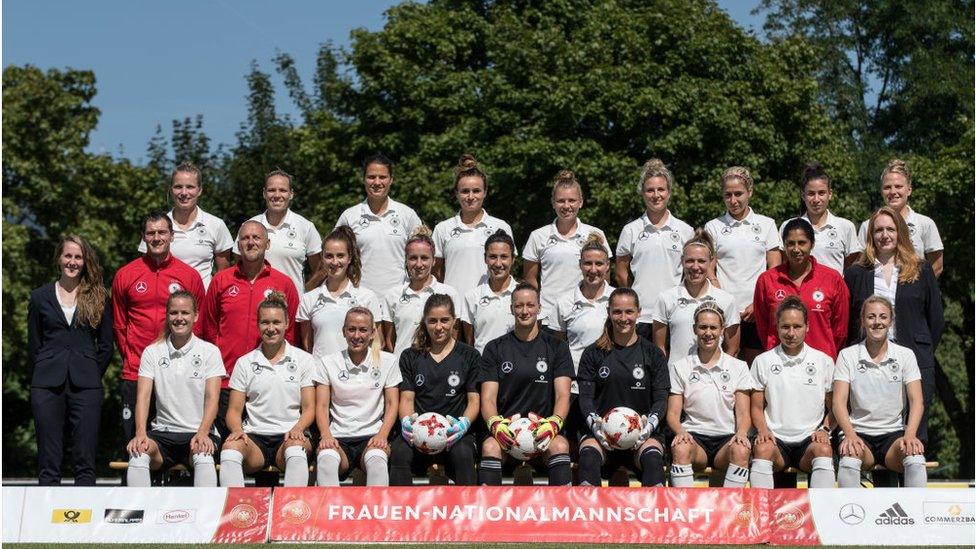
Germany squad for the Euro 2017 tournament
Holders since 1995, Germany are definitely the team to beat, especially after winning their first Olympic gold medal last year too. However, some key players from past tournaments have retired or are injured, but Germany still have great strength in the squad, and players coming through who have won many international youth honours.
France are tipped as Germany's strongest challengers. They have fallen in the last two quarter-finals on penalties, but recently showed their ability by winning the SheBelieves Cup in March, beating England and world champion hosts USA while drawing against Germany.
Norway, runners-up last time, and Olympic silver medallists Sweden are always among the contenders, while England were the best European performers at the 2015 Women's World Cup, beating Germany for bronze. Spain and Switzerland have hugely talented squads, while the Netherlands could benefit from home advantage.
7.) Who are the players to watch?
Here are just a small selection ...
Vivianne Miedema (forward, Netherlands) - The prolific striker recently signed for Arsenal and is key to the host nation's hopes.
Ada Hegerberg (forward, Norway) - The reigning Uefa Best Women's Player in Europe was joint-top scorer in qualifying with ten goals and now seeks international honours to add to her club prizes with Lyon and individual awards.
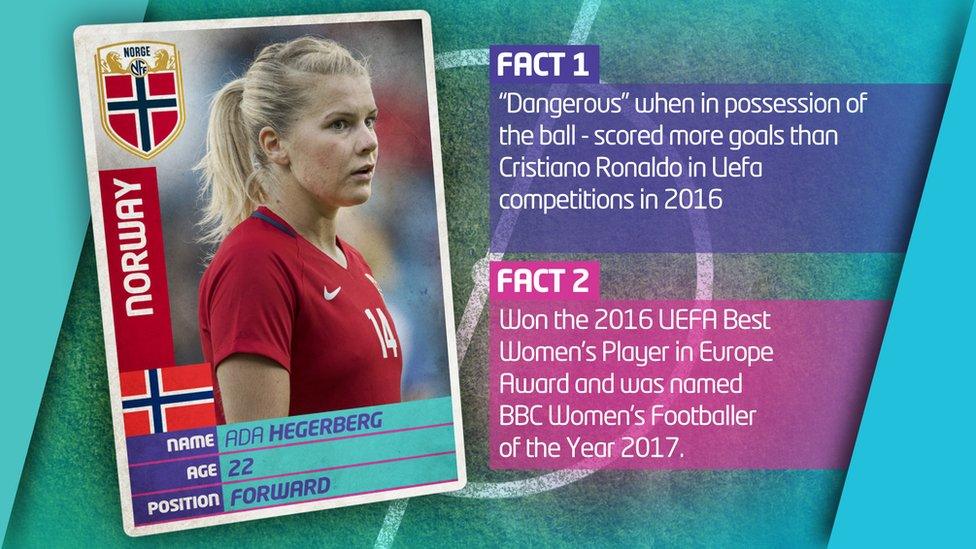
Ada Hederberg
Dzsenifer Marozsán (midfielder, Germany) - Plenty of the Germany squad are ones to watch, but Lyon playmaker Marozsán is central to their chances.
Hedvig Lindahl (goalkeeper, Sweden) - If the Chelsea keeper can perform like she did at the Olympics, Sweden have a huge opportunity.
Wendie Renard (defender, France) - France have a wealth of attacking talent but their tall captain is a rock at the back and can pop up with goals at set pieces.
Ramona Bachmann (forward, Switzerland) - One of several Switzerland players capable of a game-changing performance.
Jill Scott (midfielder, England) - One of England's stars, she has been pushed into a more attacking role by manager Mark Sampson, and has become central to England's play.
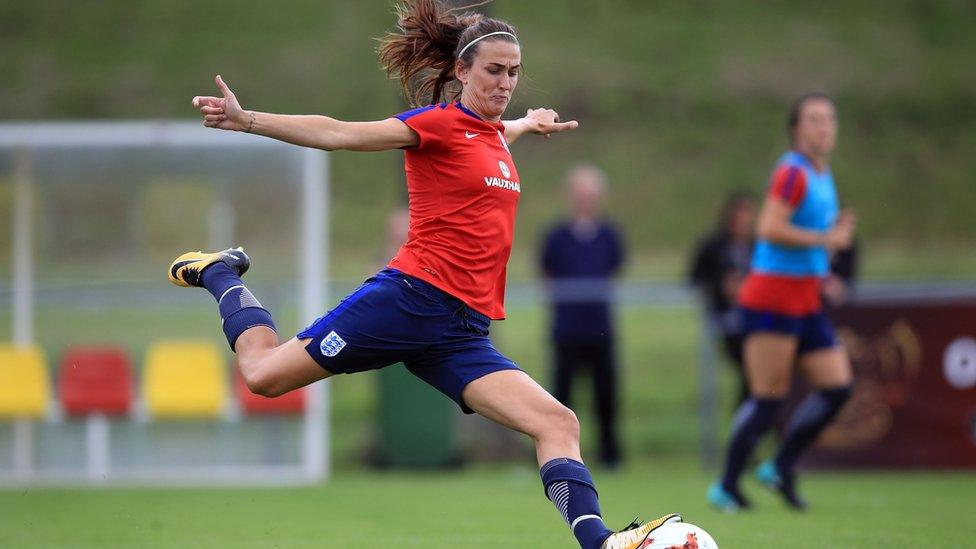
England's Jill Scott in training
8.) Are there any rule changes in the competition?
There are two trials taking place - sides will be allowed to use a fourth substitute in extra time, while yellow and red cards can be issued to team officials in technical areas.
- Published31 May 2017
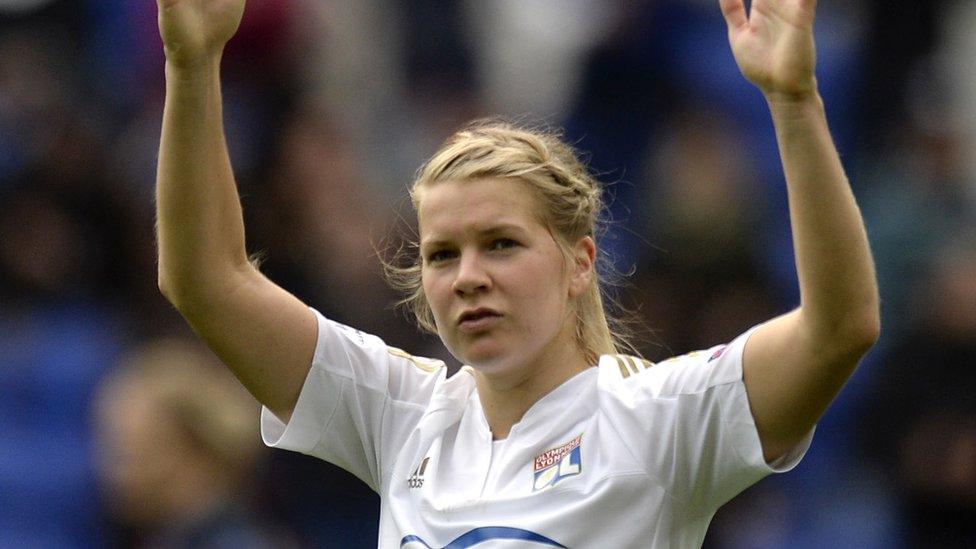
- Published16 May 2017
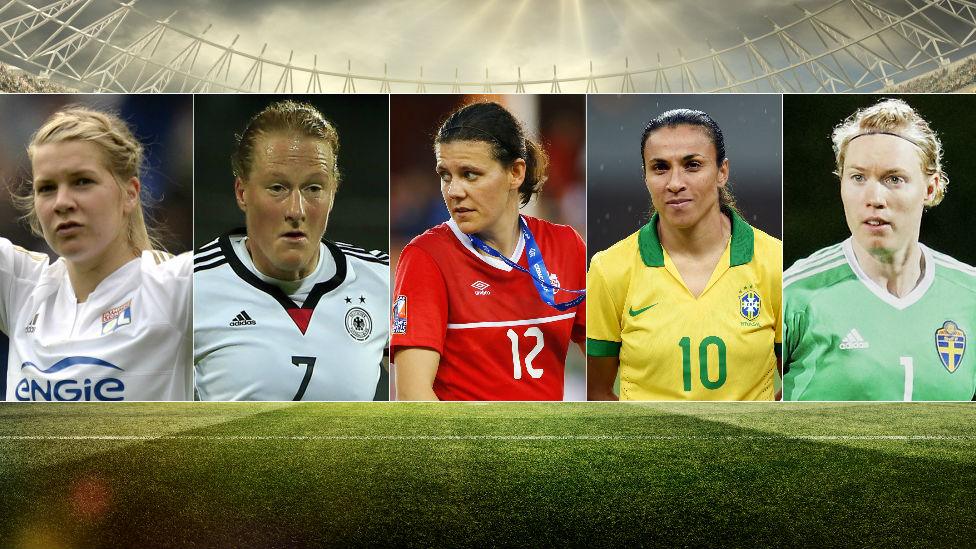
- Published8 April 2016
